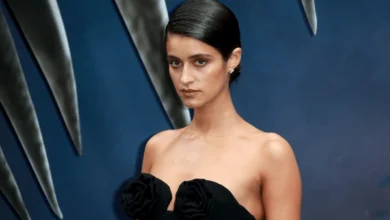Shefali Shah Biography – an Indian actress and “Delhi Crime” Fame
Shefali Shah is an Indian actress of film, television and theatre. Respected for her acting prowess, she works primarily in independent Hindi films and has received local and foreign accolades for her performances. Shah's acting career started on the Gujarati stage before she debuted on television in 1993.
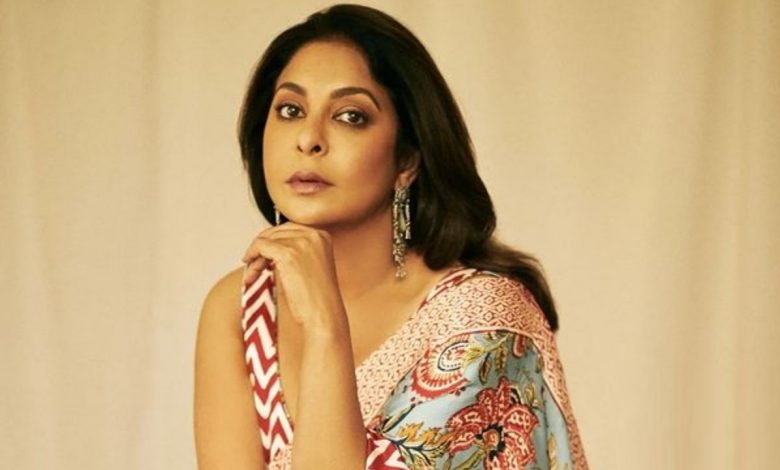
| Quick Info→ | |
|---|---|
| Real Name: | Shefali Shetty |
| Profession: | Indian actress |
| Birthplace: | Mumbai, Maharashtra, India |
| Spouse: | Vipul Amrutlal Shah |
| Age: | 39 |
Shefali Shah (born Shefali Shetty on 22 May 1973) is an Indian actress in film, television, and theatre. Respected for her acting prowess, she works primarily in independent Hindi films and has received local and foreign accolades for her performances. Shah’s acting career started on the Gujarati stage before she debuted on TV in 1993. After small parts on television and a brief stint with cinema in Rangeela (1995), she gained wider recognition in 1997 for her role in the popular series Hasratein. This was followed by lead roles in the TV series Adhikar (1997), Kabhie Kabhie (1997), and Raahein (1999). A supporting role in the crime film Satya (1998) won her positive notice and a Filmfare Critics Award, and she soon shifted her focus to film acting starting with a lead role in the Gujarati drama Dariya Chhoru (1999).
Unwilling to compromise her artistic convictions, Shah was selective about her roles through the following decades. This resulted in intermittent film work, mostly in character parts, and often in appreciation from critics. She appeared in the international co-production Monsoon Wedding (2001) and the mainstream comedy-drama Waqt: The Race Against Time (2005). In 2007, her portrayal of Kasturba Gandhi in the biographical drama Gandhi, My Father won her the Best Actress prize at the Tokyo International Film Festival, and she received the National Film Award for Best Supporting Actress for the drama film The Last Lear. Among her subsequent film roles, she played a leading part in Kucch Luv Jaisaa (2011) and was noted for her work in the social problem film Lakshmi (2014) and the ensemble drama Dil Dhadakne Do (2015).
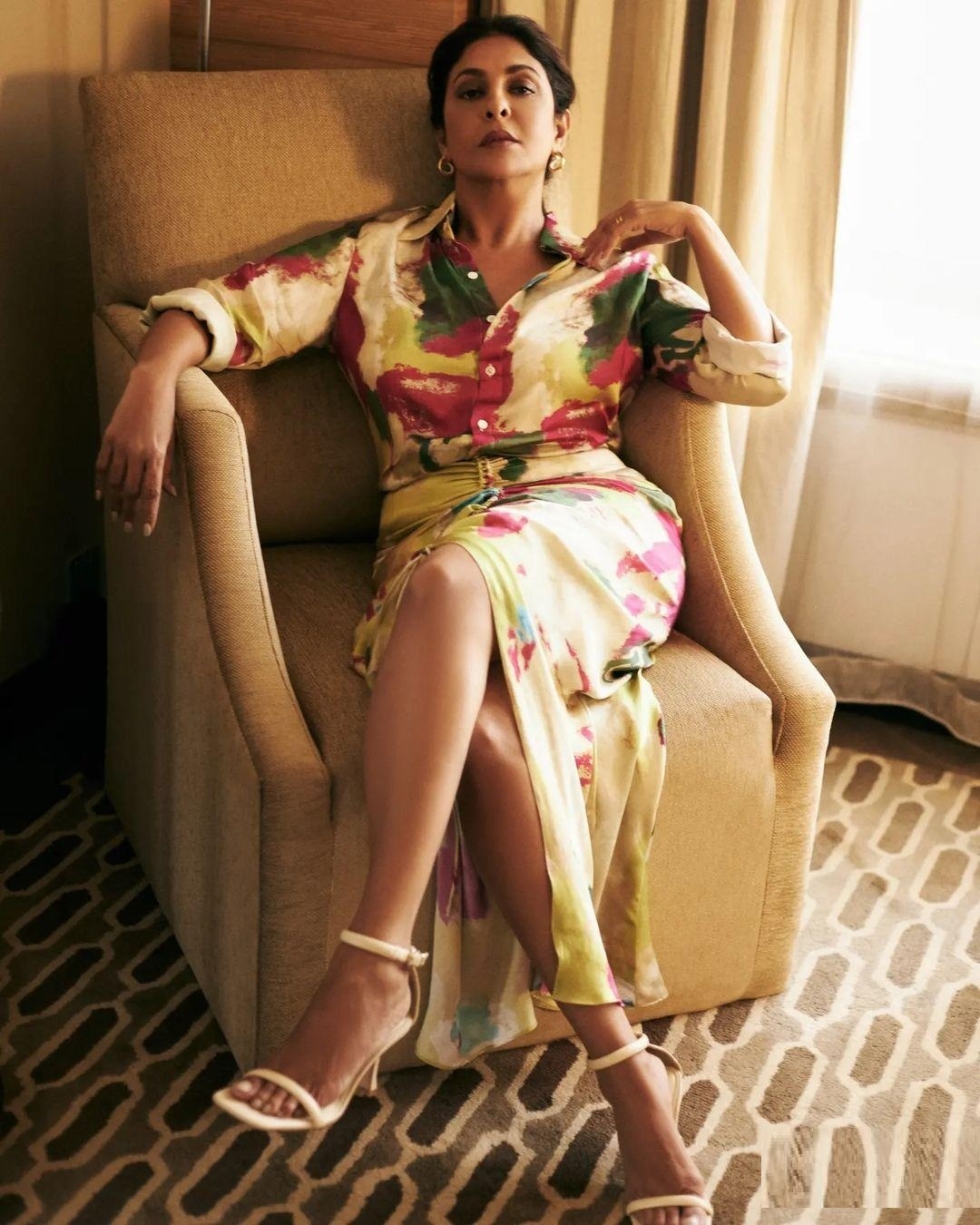
Shah’s career surged in the late 2010s as she transitioned to leading roles. She won a Filmfare Short Film Award for her performance in Juice (2017) and followed with two Netflix projects: the romantic drama Once Again (2018) and the International Emmy Award-winning crime miniseries Delhi Crime (2019). Her performance as DCP Vartika Chaturvedi in the latter met with widespread acclaim. Shah wrote and directed two self-starring COVID-19-themed short films in 2020: Someday and Happy Birthday Mummyji, and led the segment “Ankahi” in the anthology film Ajeeb Daastaans (2021). Five 2022 projects, including the Disney+ Hotstar web series Human, the feature dramas Jalsa and Darlings, as well as the second season of Delhi Crime, brought Shah further recognition.
|
Shefali Shah Biography
|
|
|---|---|
| Born |
Shefali Shetty
22 May 1973 Mumbai, Maharashtra, India
|
| Occupation | Actress |
| Years active | 1995–present |
| Works | Full list |
| Spouse(s) |
Harsh Chhaya (m. 1994; div. 2000)
Vipul Amrutlal Shah (m. 2000)
|
| Children | 2 |
| Awards | Full list |
Table of Contents
Early and personal life (Shefali Shah Biography)
Shefali Shetty was born on 22 May 1973 in Mumbai. She is the only child of Mangalorean Sudhakar Shetty, a banker at the Reserve Bank of India (RBI), and his Gujarati wife Shobha, a homeopathy doctor. Shah is fluent in Tulu, Hindi, English, Marathi, and Gujarati. The family resided in Santa Cruz, Mumbai at the RBI quarters, where she attended Arya Vidya Mandir School. While she was inclined to the arts as a child, including singing and dancing (she is trained in Bharatanatyam), she did not find particular interest in acting. Her first stint with acting happened on the Gujarati stage when she was 10; her school teacher’s playwright husband asked Shah’s mother if she would permit her daughter to play a character based on Damien Thorn from The Omen (1976). Shah played the part upon her mother’s consent and would not act again until several years later. After her schooling, she enrolled at Mithibai College in Vile Parle, opting to study science, but spent most of her student days working in theatre. Shah was married to television actor Harsh Chhaya from 1994 to 2000. In December 2000, she married director Vipul Amrutlal Shah, with whom she has two sons, Aryaman and Maurya.
In addition to acting, Shah is fond of painting and cooking. Finding painting therapeutic, she says it gives her the creative outlet she craves when not acting in films. She trained for six months at Last Ship, an artists’ residency in Bandra, and in 2016 took a course at Metàfora, an art school in Barcelona, Spain. Working mostly with acrylic on canvas as well as charcoal and ink, Shah focuses on perspective art, namely “the marriage of perspective with architectural designs” of places she has visited. She cites Mark Rothko and Jackson Pollock as her sources of inspiration. One of her paintings was on display at Jehangir Art Gallery in Mumbai at an exhibition held by Art for Concern, where it was eventually sold, while a solo show at The Monalisa Kalagram in Pune in 2017 was, by her own admission, unsuccessful.
Shah opened a restaurant named Jalsa in Ahmedabad, Gujarat in 2021, which serves Indian and international cuisines and offers customers different cultural and recreational activities, from pottery and henna decoration to musical performances such as Garba. She directly supervises its cuisine, some of which is based on her home recipes, as well as decor, having designed some of its interiors, including walls hand-painted by her. The restaurant’s second outlet was opened in Bangalore and was positively reviewed by Lifestyle Asia.
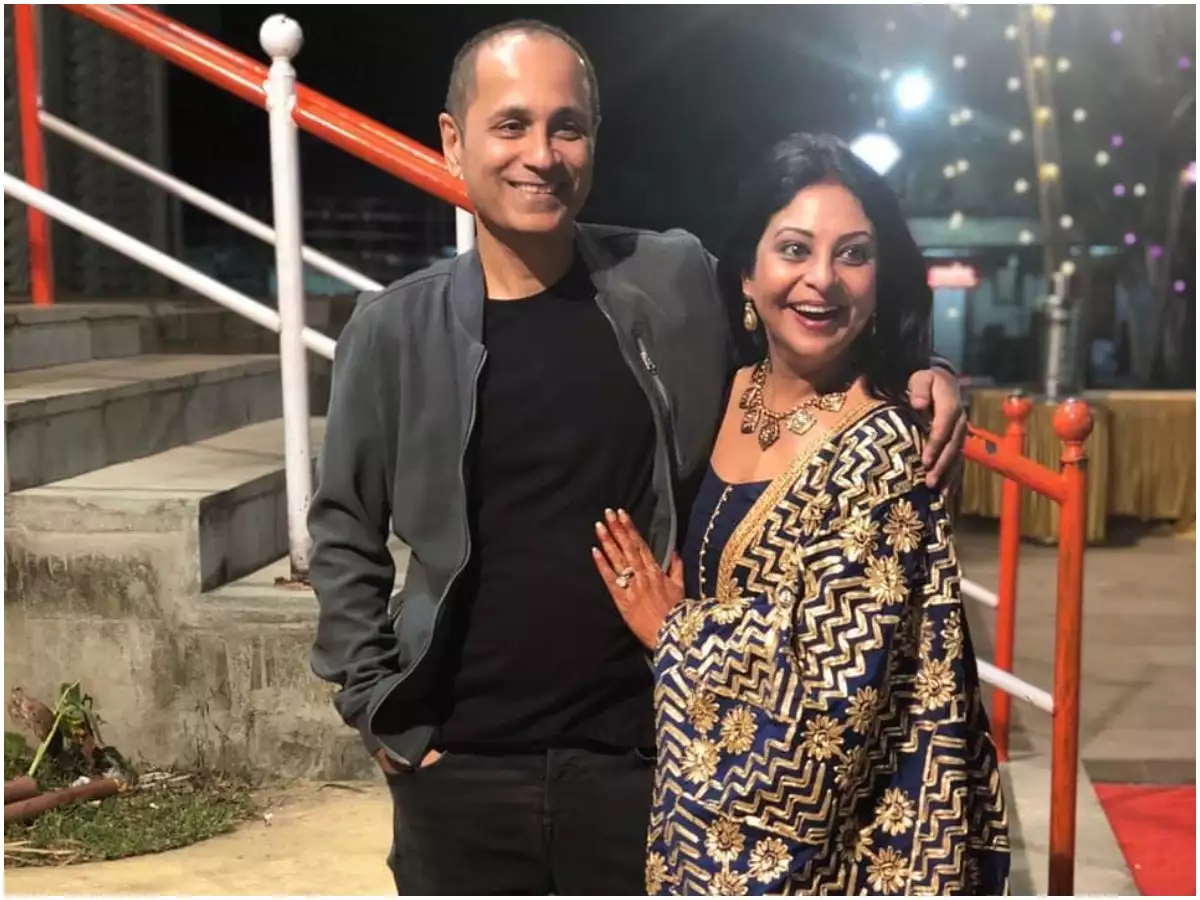
Career (Shefali Shah Biography)
Early theatre and television work (1990–1996)
Shah’s acting career began with work in inter-collegiate plays in Gujarati during the early 1990s. Her work included roles in several stage dramas including Ant Vagarni Antakshari and Doctor Tame Pan. A 1995 piece by Rasa magazine reported that Shah had proved her abilities to become one of the stars of Gujarati theatre. In one of the plays, she was brought to the attention of a team member of the TV serial Campus (1993) who suggested that she audition for a part in it. She was accepted following a screen test. This was followed by several other serials, including the popular Zee TV shows Tara and Banegi Apni Baat (both 1993–1997), as well as Naya Nukkad (1993–1994) on Doordarshan and Daraar (1994–1995) on Zee TV.
The year 1995 marked Shah’s first film appearance with a brief role in Ram Gopal Varma‘s Rangeela. A few days into shooting, she realized the part was different from what she was set up for, and she walked out of the sets as she felt cheated. Shah was reluctant to work in motion pictures after that, and the roles she was offered were mostly small character parts. She continued working in TV series, including Balaji Telefilms‘ Mano Ya Na Mano (1995–1999) and Doordarshan’s Aarohan (1996–1997), and Sea Hawks (1997–1998). An anthology horror series, Mano Ya Na Mano starred Shah opposite Durga Jasraj in an episode titled “Kabzaa”, directed by Homi Wadia, which was developed into a full-fledged serial called Kavach in 2016. Arohan, starring and produced by Pallavi Joshi, tells the story of a woman who joins the Indian Navy.
Breakthrough with Hasratein and Satya (1997–1999)
In 1997, Shah replaced Seema Kapoor in the TV series Hasratein (1996–1999) after over 120 episodes. In her first lead role, Shah starred as Savi, a married woman involved in an extramarital affair with a married man. Based on the Marathi novel Adhantari by Jaywant Dalvi, the show was popular with audiences and attracted attention for its commentary on the institution of marriage. India Today describes it as “one of the prime productions that changed the face of Indian television”. The character of Savi, a mature woman with grown-up children, was significantly older in age than Shah. Given the age differences, she persuaded director Ajay Sinha to cast her. Bhavya Sadhwani of IndiaTimes attributed the show’s success with viewers mainly to the “impeccable acting skills” demonstrated by Shah in the part. The serial gained wider public recognition for Shah, and she called it a milestone in her career. Her performance earned her the Zee Woman of the Year award in 1997. Another lead role was given to her in Mahesh Bhatt’s weekend soap Kabhie Kabhie (1997), which aired on StarPlus.
In 1999, she was cast in a Gujarati film, Dariya Chhoru, made by her future husband Vipul Shah. A love story situated on the coast of Saurashtra between a poor man (Jamnadas Majethia) and a wealthy woman (Shah), the film was named Best Film at the Gujarat State Film Awards, where Shah won the Best Actress award. The film, which The Times of India said should cater to educated Gujarati viewers, was a box-office success. According to the book Routledge Handbook of Indian Cinemas, Dariya Chhoru was among the films that started a trend of larger productions in the Gujarati film industry. In the book Gujarat: A Panorama of the Heritage of Gujarat, the film was praised for its beautiful portrayal, and Shah and her colleagues were hailed as screen artists who “could create fresh hopes among the filmgoers in Gujarat“.
Recognition for character roles (2000–2009)
Shah’s work in the 2000s started with a short appearance in Aditya Chopra‘s 2000 romance Mohabbatein. A year later, she was cast in Mira Nair‘s international co-production Monsoon Wedding, a comedy-drama that chronicles the reunion of a large Punjabi family for a wedding. Shah played Rhea Verma, an orphaned young woman, aspiring writer, and survivor of child sexual abuse, a character she considered the most complex in the film. The film opened to considerable international acclaim, receiving the Golden Lion at the 58th Venice International Film Festival and nominations for Best Foreign Language Film at the BAFTA and Golden Globe Awards. Elvis Mitchell of The New York Times singled out Shah’s part, and Saibal Chatterjee of Hindustan Times wrote that she “taps into the depths of a difficult character with amazing ease”. The film was a significant box-office success, earning over $33 million against its $1.2-million budget.
In 2007, Shah was lauded for her work in two films: Feroz Abbas Khan’s biographical film Gandhi, My Father, and Rituparno Ghosh‘s English-language film-within-a-film drama The Last Lear. An Indo-British co-production, Gandhi, My Father features Shah in the role of Kasturba Gandhi, who is torn by the lifelong conflict between her husband Mahatma Gandhi, and son Hiralal (played by Darshan Jariwala and Akshaye Khanna, respectively). Portraying the character from Kasturba’s early adulthood to old age, Shah lost weight to look the part. Khalid Mohamed of Hindustan Times called her performance “magnificent” and Roshmila Bhattacharya of Screen described her as “brilliant, her sparkling glances, eloquent silences, and drooping shoulders effectively conveying the hopelessness and helplessness of a parent whose child has gone astray”. She was awarded the Best Actress prize at the Tokyo International Film Festival and the Critics Award for Best Actor – Female at the 2008 Zee Cine Awards.
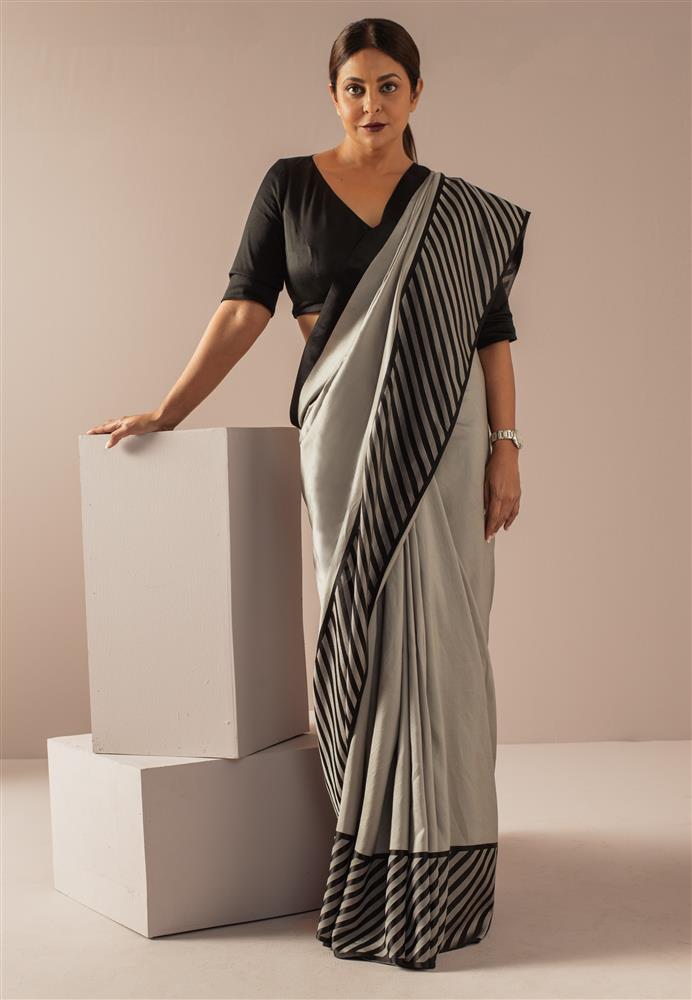
The Last Lear revolves around a Shakespearean theatre actor (played by Amitabh Bachchan). Shah played his troubled and irritable caregiver and live-in partner, a role she considered her best yet, alongside Preity Zinta and Divya Dutta. The film premiered at the Toronto International Film Festival where it was well-received. Rajeev Masand of IBN Live wrote of “the manner she goes from spiteful to soothing” throughout the film, and Sukanya Verma of Rediff.com took note of Shah’s commanding presence. The film was named Best Feature Film in English at the 55th National Film Awards, where Shah won the Best Supporting Actress award for what was cited by the jury as an “aggressive portrayal of a Bengali housewife who in time becomes more tolerant of her aging husband’s many eccentric guests”.
Intermittent work on stage and screen (2008–2016)
Subhash Ghai’s crime thriller Black & White (2008) stars Shah as Roma Mathur, a Bengali activist and the wife of an Urdu professor (Anil Kapoor). The film follows the couple’s acquaintance with a disguised Islamic fundamentalist plotting a suicide attack at the Red Fort. It generated mixed reviews and so did Shah’s performance, which Khalid Mohamed found to be “unusually hammy”. Two years later, in view of the lack of substantial film work that would realize her acting potential, Shah’s husband Vipul cast her in his Hindi stage production Bas Itna Sa Khwab, directed by Chandrakant Kulkarni. Based on Kulkarni’s Marathi play Dhyanimani, it marked Shah’s return to the stage after a decade and saw her in the role of a middle-class housewife opposite Kiran Karmarkar. She spoke of her acting experience on stage, recounting her full involvement with her character: “I have to literally break down every time, then collect the pieces and put them back together again”. Authors Sunil Kant Munjal and S.K. Rai, in the book All the World is a Stage, lavished on her performance: “Those who have not seen Shefali Shah on stage have missed seeing one of the best live performers in this country. For the entire length of a two-hour play, she draws the audience in, making them believe her story is part of their story too, that her pain is something they feel too.”
In Brothers (2015), Karan Malhotra‘s remake of the American sports drama Warrior (2011), Shah had a minor supporting role. Her character Maria Fernandes is presented in flashbacks as a woman who accepts the child her adulterous husband had out of wedlock. The film generated mixed-to-negative reviews; Vishal Menon of The Hindu thought she had a role that required copious crying but The Hollywood Reporter found her performance heartbreaking. Shah voiced the character of Raksha in the Hindi version of the Disney live-action feature The Jungle Book (2016). She next played the fictional part of India’s Minister of Home Affairs Leena Chowdhury in the action thriller Commando 2: The Black Money Trail.
Critical acclaim in leading roles (2017–present)
In 2017, Shah acted in Juice, a short film about gender inequality in middle-class Indian families. Directed by Neeraj Ghaywan, it stars Shah as Manju Singh, a woman who, after hours spent in the kitchen, acts in defiance of her inconsiderate husband. The film and Shah’s performance received favorable reviews. Critics noted her ability to communicate emotions through gestures and expressions; Kriti Tulsiani wrote that Shah’s “unfazed gazes convey more than words will ever say”. The film won two Filmfare Short Film Awards at the 63rd Filmfare Awards: Best Film (fiction) and Best Actress for Shah. In years to follow, she credited Juice as the first of several films that helped propel her career forward. In Once Again (2018), an Indo-German Netflix romance film, Shah was cast in the lead as a widowed middle-aged restaurateur who falls in love with an aging film star played by Neeraj Kabi. Shah said she had long awaited a film of the sort, describing herself as “an incurable romantic”. She received compliments for her performance, and her chemistry with Kabi drew positive notice. Deepa Gahlot of Financial Chronicle appreciated the film’s subtlety and took note of Shah’s expressive eyes revealing her inner state, an opinion shared by other critics.
In 2022, Shah starred in Human, a medical streaming television series. Directed by her husband for Disney+ Hotstar, the show explores the nexus between pharmaceutical companies and large private hospitals that conduct human trials for new drugs on lower-class citizens. She played Dr. Gauri Nath, a powerful and ruthlessly ambitious neurosurgeon with a traumatic childhood who owns Manthan, a self-founded multi-specialty hospital. Shah found the negative character of Gauri to be unlike anyone she had ever known. Hindustan Times described Gauri as one of the best characters in Indian digital series yet, calling her an “incredibly disturbed sociopath” and “a vicious snake singularly committed to building her business”. Critics reacted positively to Shah’s turn, noting her composed demeanor and hushed tone in the part. Later in the year, Shah starred opposite Vidya Balan in the social thriller Jalsa, an Amazon Prime feature film. Her part is that of Rukhsana, a maid whose daughter becomes the victim of a hit-and-run accident. The film opened to a positive response from critics, and Shah received rave reviews for her understated performance. She was named Best Actress at the annual Indian Film Festival of Melbourne. Anuj Kumar of The Hindu commended her performance and character: “At the cost of repeating oneself, the depth of Shefali’s eyes and the emotions that they could hold continues to bewitch and baffle. Her Rukhsana is that vulnerable maid from the margins who makes an attempt to hold on to a life of dignity.”
In the black comedy Darlings (2022), produced for Netflix, Shah and Alia Bhatt star as a mother and daughter who embark on a revenge plan against the latter’s abusive husband. Shubhra Gupta complimented Shah for her “powerful act”, and Anna M. M. Vetticad wrote of Shah’s effective blend of comedy and drama in the part. Darlings became the highest-viewed non-English Indian original on Netflix. August 2022 saw the release of the second season of Delhi Crime, based on the chapter “Moon Gazer” from retired police officer Neeraj Kumar’s book Khaki Files. Addressing new themes such as class prejudice, the show opened to positive reviews and Shah again received favorable comments for holding the show together with both power and vulnerability. According to Vogue‘s Taylor Antrim, Shah is “tremendous in the role” as she “seizes your attention” in her reprisal of Vartika Chaturvedi, who is “intensely serious; fearsome to her subordinates, who call her ‘Madam Sir’; and clearly burdened by her job”. Shah next appeared in the medical comedy Doctor G, alongside Ayushmann Khurrana and Rakul Preet Singh.
Artistry and reception (Shefali Shah Biography)
Shah has been described by critics and the media as one of India’s finest actresses. Describing herself as an instinctive actor, she has confessed to not approaching acting as a craft but rather becoming a person and living each character’s struggle, which often proves taxing. She explained her technique: “Every role takes away a part of me. It’s exhausting, it drains me completely, and then enriches me. It’s a cycle, but I don’t know any other way”. Known for her understated acting style, Shah has been noted for her big, expressive eyes and her ability to emote through minimal facial expressions and gestures, and often through silence. Devansh Sharma described Shah’s use of silence as “a leitmotif in all her performances”, and Sneha Bengani commented: “Shah has always thrived in silences. Through them, she communicates with easy effortlessness what words almost always fail to.” In view of her preference for minimalism, she has gained a reputation for asking directors to cut her lines and scenes. Shah explains that cinema is a powerful visual medium that captures actors’ faces, sometimes not much-spoken text is required and is often redundant. Due to her eagerness to be thoroughly versed in details about her scripts and parts, Shah often keeps badgering her directors with questions during filming.
Shah was one of the leading actresses of Indian television before she left it as she was dissatisfied with the content. Following the positive reaction to her performance in Satya in 1998, she expected more film work coming her way whereas the offers she received at the time comprised mostly small character parts. While initially bothered by the limited work available to her in Hindi films, Shah has over the years come to terms with the realization that satisfactory roles would come to her every once in a while. This resulted in numerous gaps between her film appearances. The rise of digital streaming platforms, however, rejuvenated Shah’s career, with parts not otherwise available in films and often written especially for her. Delhi Crime proved to be a major turning point in her career, as it brought an influx of film offers, mostly of leading roles which would seldom come her way before. Consequently, she embarked on the busiest period of her professional life, working on six projects throughout 2020 in films and roles the kind which she longed for. She credited digital platforms with giving her the opportunity to invest more in her parts: “The web-series format gives me hours to experiment, explore and indulge and understand my character’s nuances.”
The reception to Shah’s performances has been positive from her initial television work. Her early screen persona on television was that of a woman who, according to Chatura Poojari, is “homely, chatty but with a sensible head firmly screwed onto her shoulders — a regular Indian woman who deals with life by wearing a velvet glove over an iron hand”. Shah believes her middle-class background has helped her shape a personality that makes her characters relatable. A 1999 article by The Indian Express said that she “pulls off each and every character with absolute ease”. Subhash K. Jha describes her as “an impossibly skilled actress” and, on another occasion, “an actress who forces you to watch her”. Speaking of her eyes, Devansh Sharma wrote in a review of Once Again (2018), “Her loquacious eyes express rage with as much ease as they do love.” Reviewing Jalsa (2022), Monika Rawal Kukreja was highly impressed with Shah’s use of just her eyes and expressions to emote. Author and journalist Aparna Pednekar wrote, “Shah’s au naturale performances come from an instinctive, savage space, with an abundance of layers simmering beneath a placid smile and soft-spoken personality”.
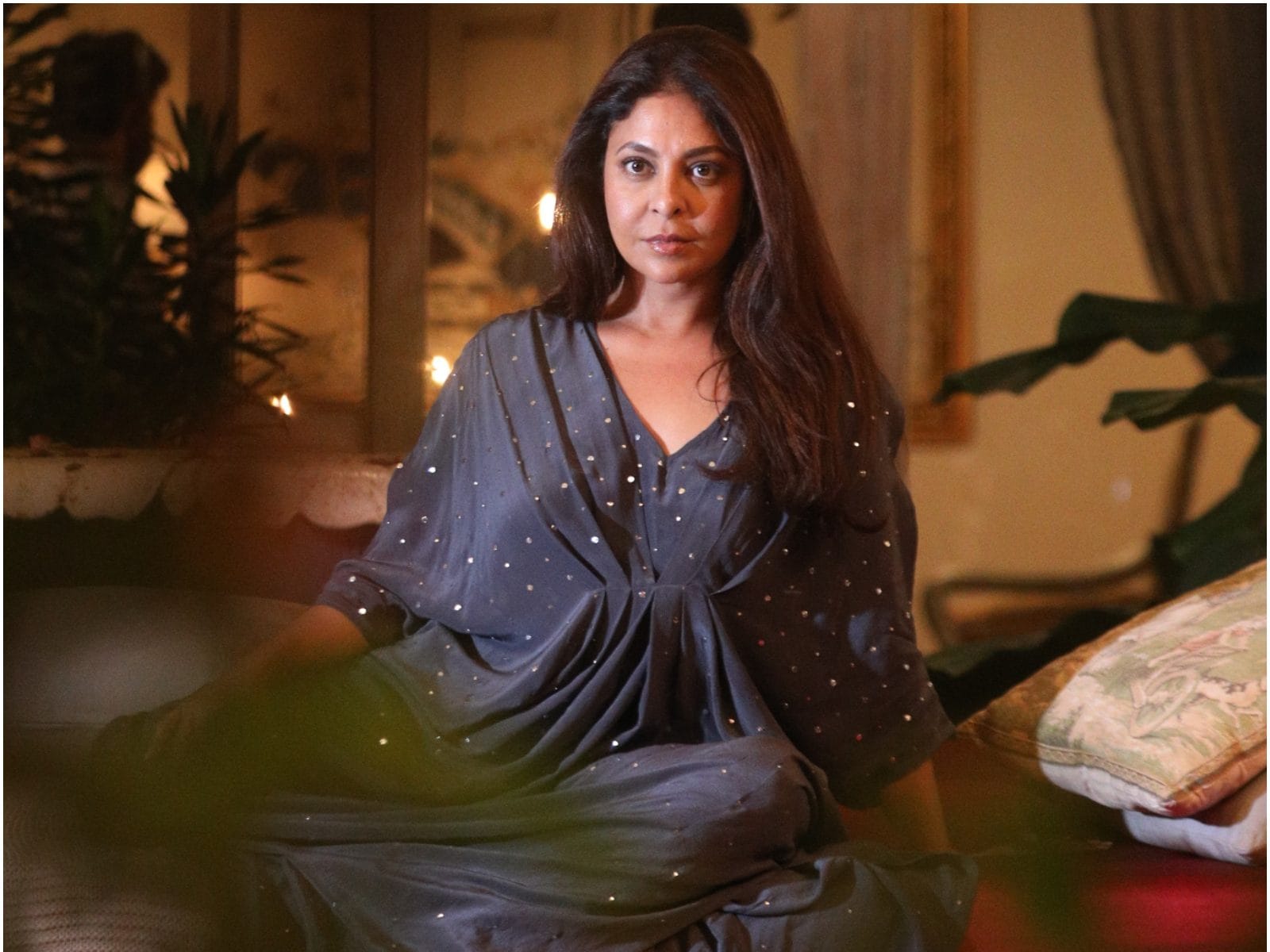
Awards and Nominations (Shefali Shah Biography)
Filmfare Awards
| Year | Category | Film | Result |
|---|---|---|---|
| 1999 | Best Actress (Critics) | Satya | Won |
| Best Supporting Actress | Nominated | ||
| 2006 | Waqt: The Race Against Time | Nominated | |
| 2016 | Dil Dhadakne Do | Nominated | |
| 2018 | Best Actress in a Short Film | Juice | Won |
National Film Awards (Shefali Shah Biography)
| Year | Category | Film | Result |
|---|---|---|---|
| 2009 | Best Supporting Actress | The Last Lear | Won |
Screen Awards
| Year | Category | Film | Result |
|---|---|---|---|
| 1999 | Best Supporting Actress | Satya | Won |
| 2006 | Waqt: The Race Against Time | Nominated | |
| 2008 | Gandhi, My Father | Nominated | |
| 2016 | Best Ensemble Cast | Dil Dhadakne Do | Won |
Stardust Awards (Shefali Shah Biography)
| Year | Category | Film | Result |
|---|---|---|---|
| 2006 | Best Supporting Actress | Waqt: The Race Against Time | Won |
| 2008 | Gandhi, My Father | Nominated | |
| 2016 | Dil Dhadakne Do | Won |
Zee Cine Awards (Shefali Shah Biography)
| Year | Category | Film | Result |
|---|---|---|---|
| 1999 | Best Actor in a Supporting Role – Female | Satya | Nominated |
| 2006 | Waqt: The Race Against Time | Nominated | |
| 2008 | Best Actress (Critics) | Gandhi, My Father | Won |
Other Awards (Shefali Shah Biography)
| Year | Award | Category | Work | Result |
|---|---|---|---|---|
| 1998 | People’s Choice Awards India | Best Supporting Actress | Satya | Nominated |
| 2005 | Waqt: The Race Against Time | Nominated | ||
| 2007 | Gandhi, My Father | Nominated | ||
| Tokyo Film Festival | Best Actress | Won | ||
| Producers Guild Film Awards | Best Actress in a Supporting Role | Nominated | ||
| 2016 | Times of India Film Awards | Best Supporting Actress | Dil Dhadakne Do | Nominated |
| FOI Online Awards | Special Mention | Won | ||
| 2019 | Best Actress in a Leading Role | Once Again | Nominated | |
| iReel Awards | Best Actress in a Drama Series | Delhi Crime | Won | |
| Asian Academy Creative Awards | Best Actress in a Leading Role | Won | ||
| 2022 | Indian Film Festival of Melbourne | Best Actress | Jalsa | Won |
| 2022 | Alberto Sordi Family Award | International cultural figure | Won | |
| 2022 | International Police Award Arts Festival Premio Apoxiomeno | Best Actress | Delhi Crime (S1) | Won |



